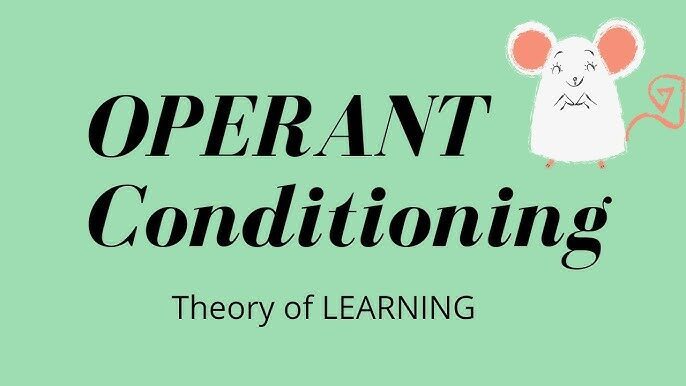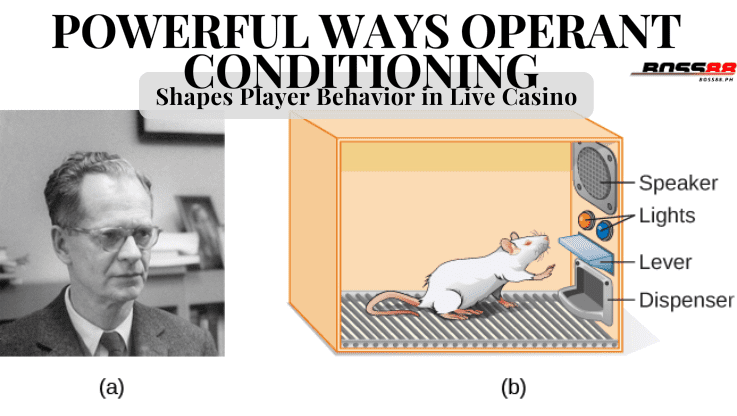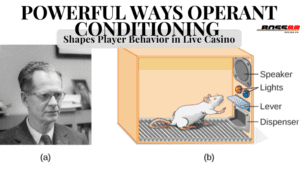Operant conditioning, a concept derived from behavioral psychology, is a powerful tool that live casinos employ to influence player behavior. By utilizing a mix of reinforcements and punishments, casinos create engaging environments that keep players coming back for more. Here are five distinct ways operant conditioning shapes player behavior in live casinos.

Reward Systems: Reinforcing Positive Behaviors
One of the most obvious ways operant conditioning manifests in live casinos is through reward systems. Players receive rewards for specific actions, encouraging them to repeat those behaviors. These rewards include:
- Loyalty Programs: Players earn points for every game they play, which can later be redeemed for free spins, bonuses, or even physical gifts.
- Instant Wins: Winning a hand or spinning a jackpot triggers a release of dopamine, reinforcing the desire to play more.
- Promotional Offers: Casinos offer bonuses like cashback or match deposits, which act as positive reinforcement for continued play.
These rewards condition players to associate the act of playing with positive outcomes, ensuring they remain engaged.
Near Misses: The Illusion of Almost Winning
Live casinos leverage the psychology of near misses to keep players hooked. A near miss occurs when a player comes close to winning but falls just short—for example, landing two jackpot symbols on a slot machine while the third symbol narrowly misses.
- Psychological Impact: Near misses activate similar neural pathways as actual wins, creating a sense of anticipation and motivation to try again.
- Game Design: Slot machines and table games are designed to create frequent near-miss scenarios, giving players the illusion that victory is within reach.
By conditioning players to feel that success is just around the corner, casinos encourage longer gaming sessions.
Variable Ratio Schedules: The Unpredictable Rewards
Variable ratio schedules are one of the most effective reinforcement strategies in operant conditioning. In this system, rewards are delivered after an unpredictable number of actions, keeping players engaged for longer periods.
- Uncertainty Factor: Players don’t know when the next win will come, which makes every spin or bet exciting.
- Examples in Action: Slot machines are a prime example of variable ratio schedules. Wins are random, but the possibility of hitting the jackpot motivates players to keep spinning.
This unpredictability taps into the brain’s reward system, making gambling a thrilling and addictive experience.
Punishment and Loss Aversion
While reinforcement plays a significant role, punishment and loss aversion also influence player behavior in live casinos. Loss aversion is the tendency to prefer avoiding losses over acquiring equivalent gains.
- Timeouts and Cooldowns: Losing streaks often lead players to feel frustrated. Casinos may encourage breaks to mitigate this frustration and maintain a positive gaming experience.
- Chasing Losses: Players conditioned by previous wins may feel compelled to recover losses, leading to extended gaming sessions.
- Psychological Penalties: Features like “loss notifications” subtly remind players of their losses, discouraging reckless behavior while promoting responsible gaming.
This balance of mild punishment ensures players stay engaged without becoming overly disheartened.
Social Proof and Peer Influence
Live casinos create immersive environments that leverage social proof and peer influence to shape player behavior. Observing others winning or engaging in games reinforces a sense of community and encourages participation.
- Leaderboards: Real-time leaderboards highlight top players, motivating others to compete and climb the ranks.
- Live Chat Interactions: Players can interact with dealers and other participants, creating a shared experience that reinforces engagement.
- Big Wins: Broadcasting significant wins encourages other players to believe they can achieve similar success.
Social reinforcement fosters a dynamic environment where players feel connected, enhancing the overall gaming experience.

Final Thoughts: Balancing Entertainment and Responsibility
Operant conditioning is a double-edged sword in live casinos. While it enhances the gaming experience through rewards, near misses, and social proof, it’s crucial for players to remain aware of how these tactics influence their behavior. Casinos must also prioritize responsible gaming by promoting transparency and offering tools to help players manage their habits.
Understanding the psychological principles at play can empower players to make informed decisions, striking a balance between entertainment, strategy, and responsible gaming. Ultimately, the goal is to create a captivating yet ethical gaming environment where everyone can enjoy the thrill responsibly.







































